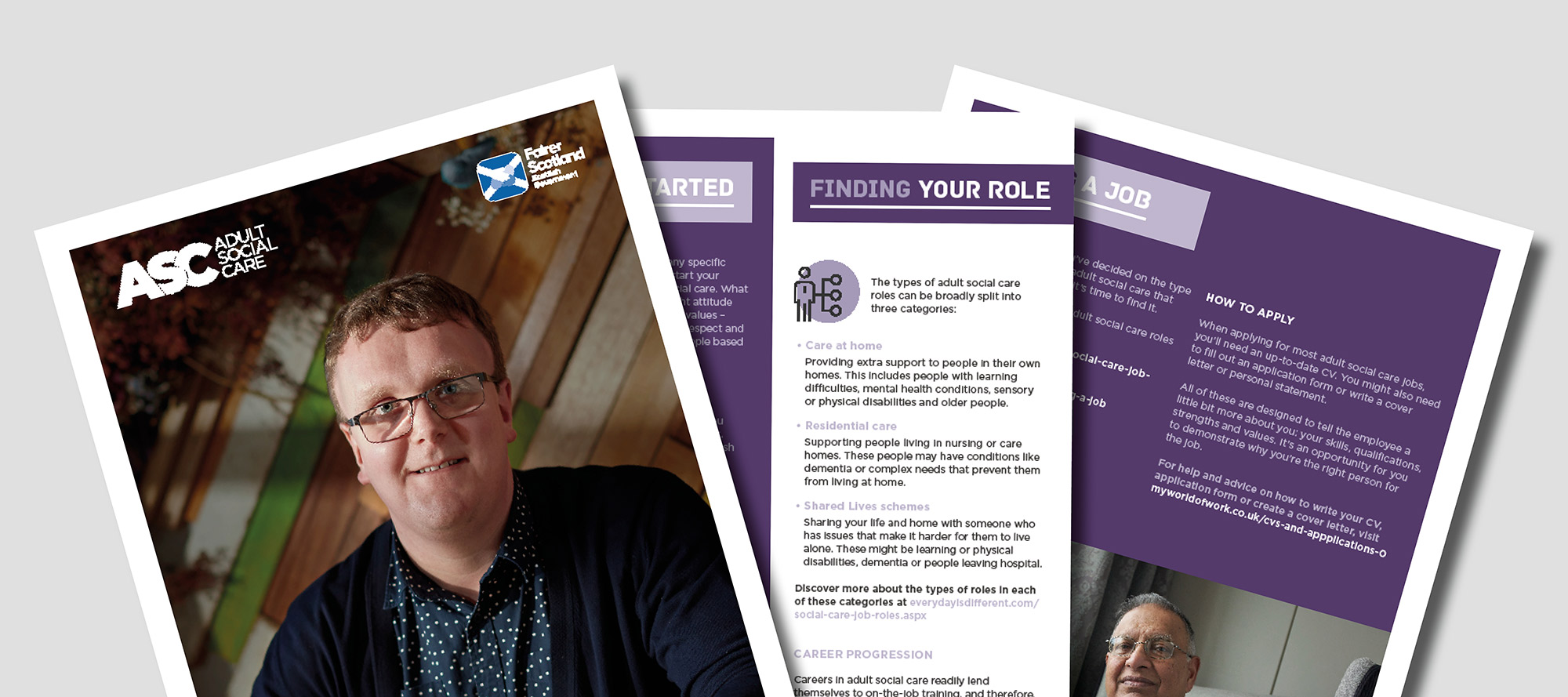How to apply
Most adult social care organisations, including local authorities, will ask you to complete an application form.
These are designed so you can tell the employer a little bit more about you: your skills, background, strengths and values. It’s an opportunity for you to demonstrate why you’re the right person for the job.
Disclosure requirements
To work in adult social care, your employer will advise if you need to be a member of the Protecting Vulnerable Groups (PVG) Scheme from Disclosure Scotland.
Registration
When you begin a job in adult social care, you’ll need to register with the SSSC within six months of starting work.
Registration makes you part of one of the biggest workforces in Scotland who take pride and passion in the work they do to improve the lives of people across Scotland. It also allows you to access to a wide range of support and resources.
On-the-job training
Once you’re a registered social services worker, you’ll need to complete a qualification within five years of registration. This might be an apprenticeship or Scottish Vocational Qualification (SVQ), a college qualification or a university degree.
Your employer will provide support. You can use the SSSC’s online qualification pathways tool to learn which qualification is right for you and how to apply.
Modern apprenticeships (MA)
Modern apprenticeships are for all ages, and they’re a great way for you to gain the skills you need in your adult social care job; all the while being paid. The qualifications are developed by Sector Skills Councils (SSC), and deliver training at SCQF level 6 (SVQ2) or SCQF level 7 (SVQ3).. They enhance the core skills needed for your role.
Search for a Modern Apprenticeship in Social Services and Healthcare at apprenticeships.scot or contact colleges and local training providers to find out about vacancies. If you’re still in school, ask your careers adviser about the Foundation Apprenticeship in Social Services and Healthcare.
You can also use the SSSC’s online qualification pathways tool to learn more about apprenticeships.
Career progression
Careers in adult social care readily lend themselves to on-the-job training, and there are many ways to progress. Taking vocational courses such as dementia care, communication skills and team leadership whilst you work is a great way to advance your career, whether that means moving into management or having a basis for transferring into other care specialisms or other areas of healthcare.
Technical apprenticeships (TA) and professional apprenticeships (PA)
These higher-level apprenticeships offer career skills – like building teams and managing budgets – rather than core skills. Like MAs, they are flexible work-based training – a way of improving your skills in line with specific business requirements. TAs deliver industry-specific training to the level of SCQF level 9 (SVQ4) and PAs to the level of SCQF level 10 (SVQ4).
Download your careers in adult caring guide
Our handy guide has all the info you need to begin a career in adult social care.

Get our top tips for finding a rewarding career in care delivered straight to your inbox.







